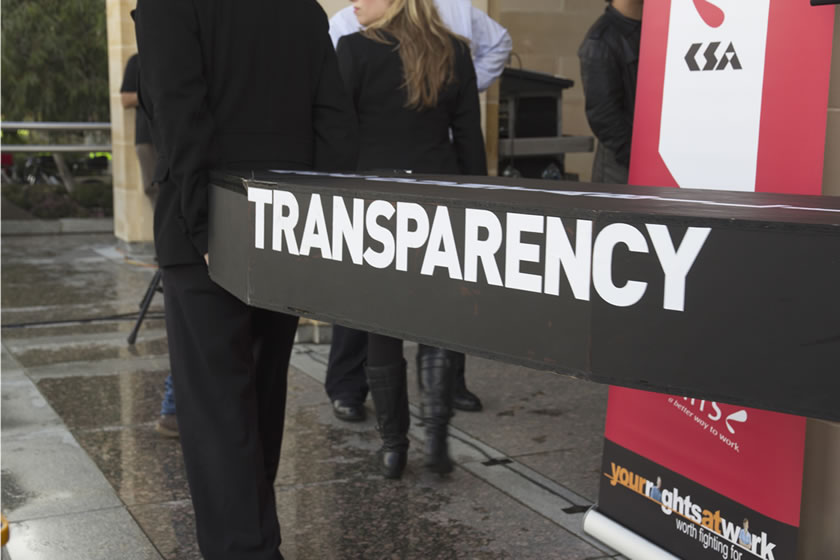
CPSU/CSA/(CC BY-SA 2.0
Freedom of information is a basic right now enshrined in most country’s constitutions or legislation. These laws enable people to protect their rights (for example to services like water and sanitation) and can be used by the public to guard against government abuses, mismanagement and corruption. Freedom of information can promote more openness and transparency in the decision-making process and improve citizens’ trust (González de Asis, 2009).
Transparency laws go one step further. They formally oblige public authorities to proactively share information of public interest online, such as in Peru or the city of Hamburg, Germany.

Amazon care Amorazon/ (CC BY 2.0)
In many developing countries, the process of procuring medical supplies in public hospitals is highly vulnerable to corruption. Simple and user-friendly information system—for prices, quality, volume, performance of suppliers, etc.—could help mitigate corruption risks. In particular, tools such as the WHO Norms and Standards and the International Price Guide are useful in reducing prices and opportunities for corruption (U4 webpage on corruption in public procurement in the health sector).
During a 1996 anti-corruption crackdown in Argentina, price information was made widely available to positive results, as documented by a 2008 U4 brief (Savedoff 2008). The City of Buenos Aires began collecting information about the prices of a wide range of medical supplies across its network of 33 hospitals and announced that the information would be reported back to the city’s purchasing managers. The dissemination of price information allowed hospital procurement officers to compare the prices they paid for medical supplies with other hospitals.